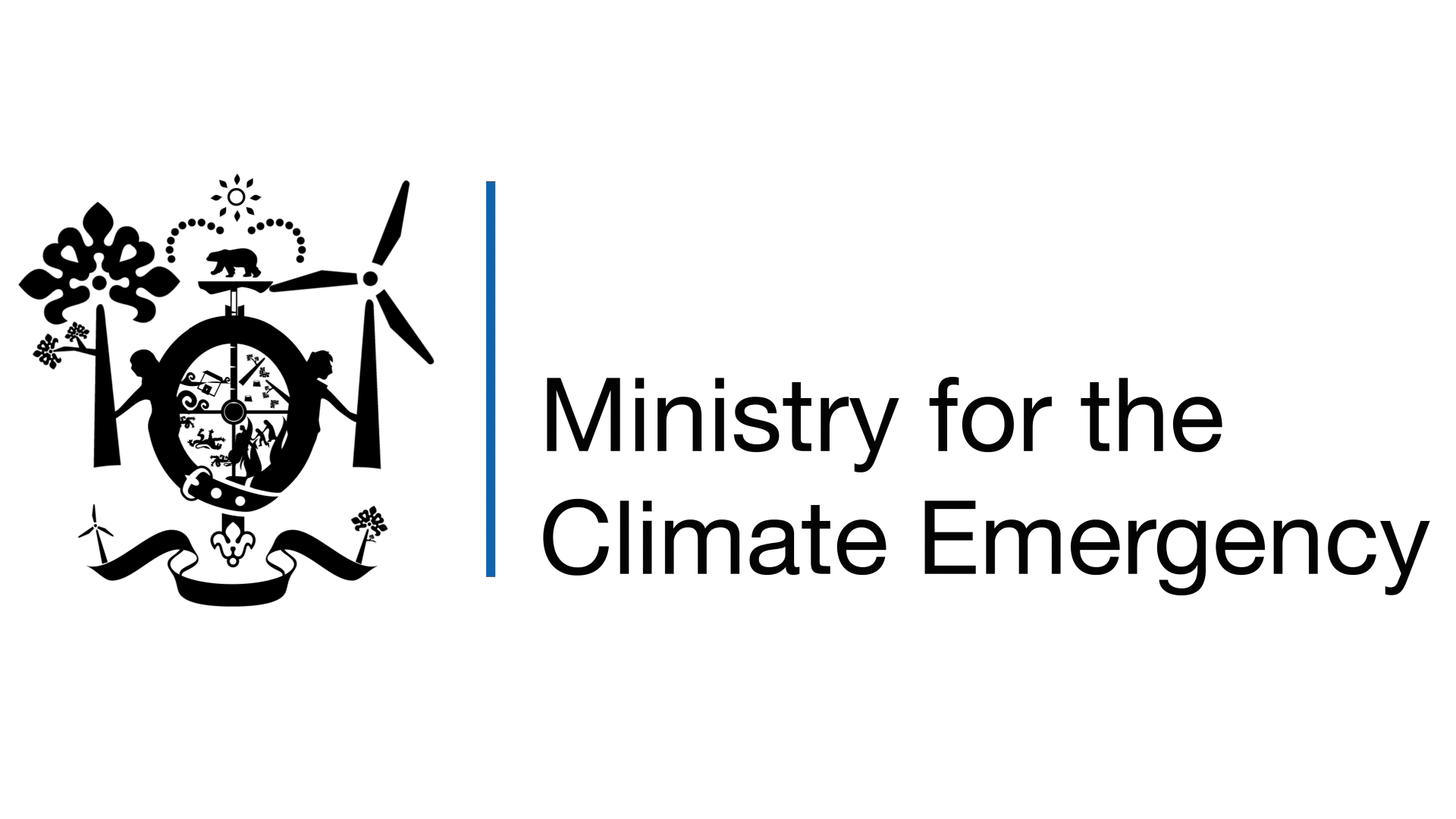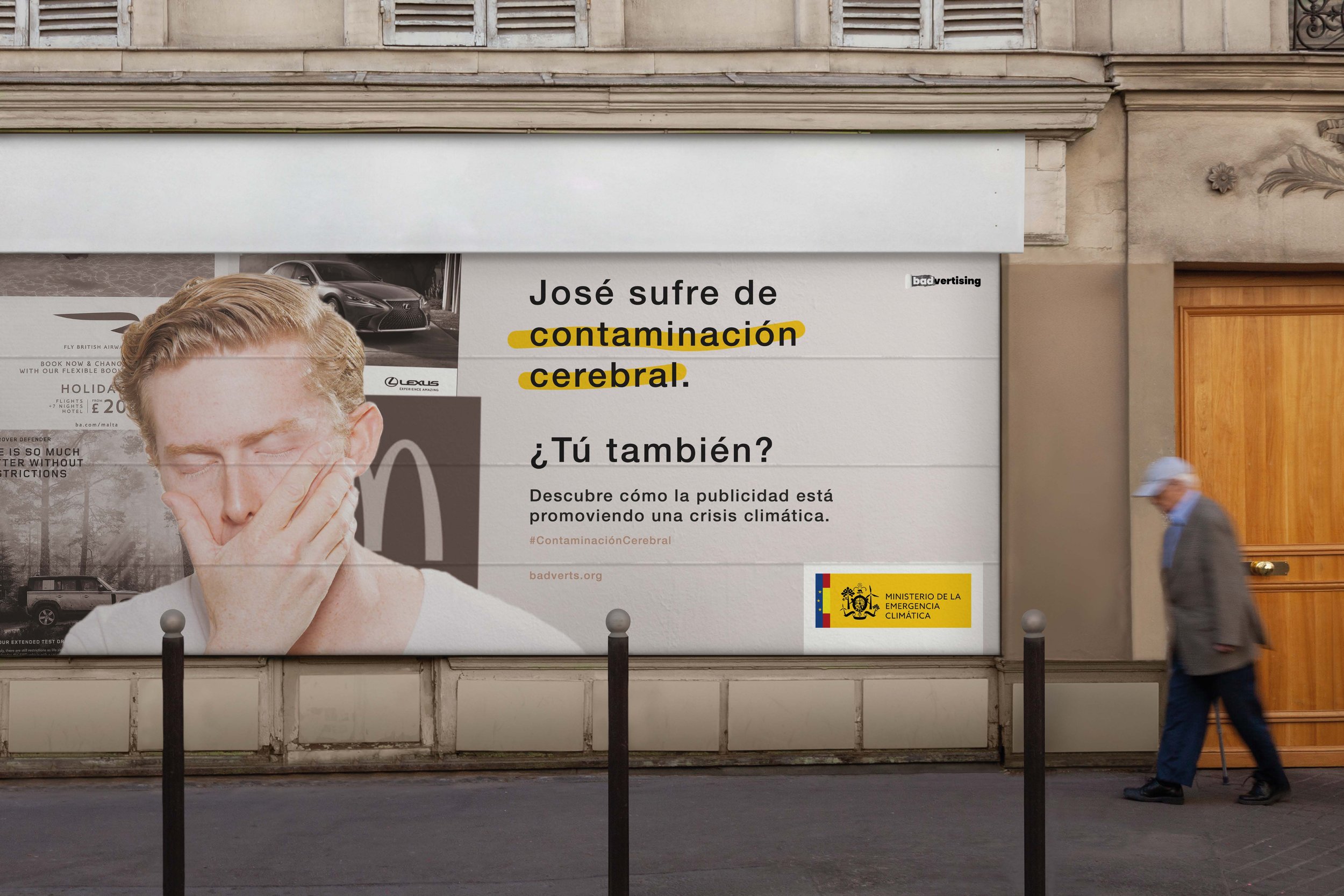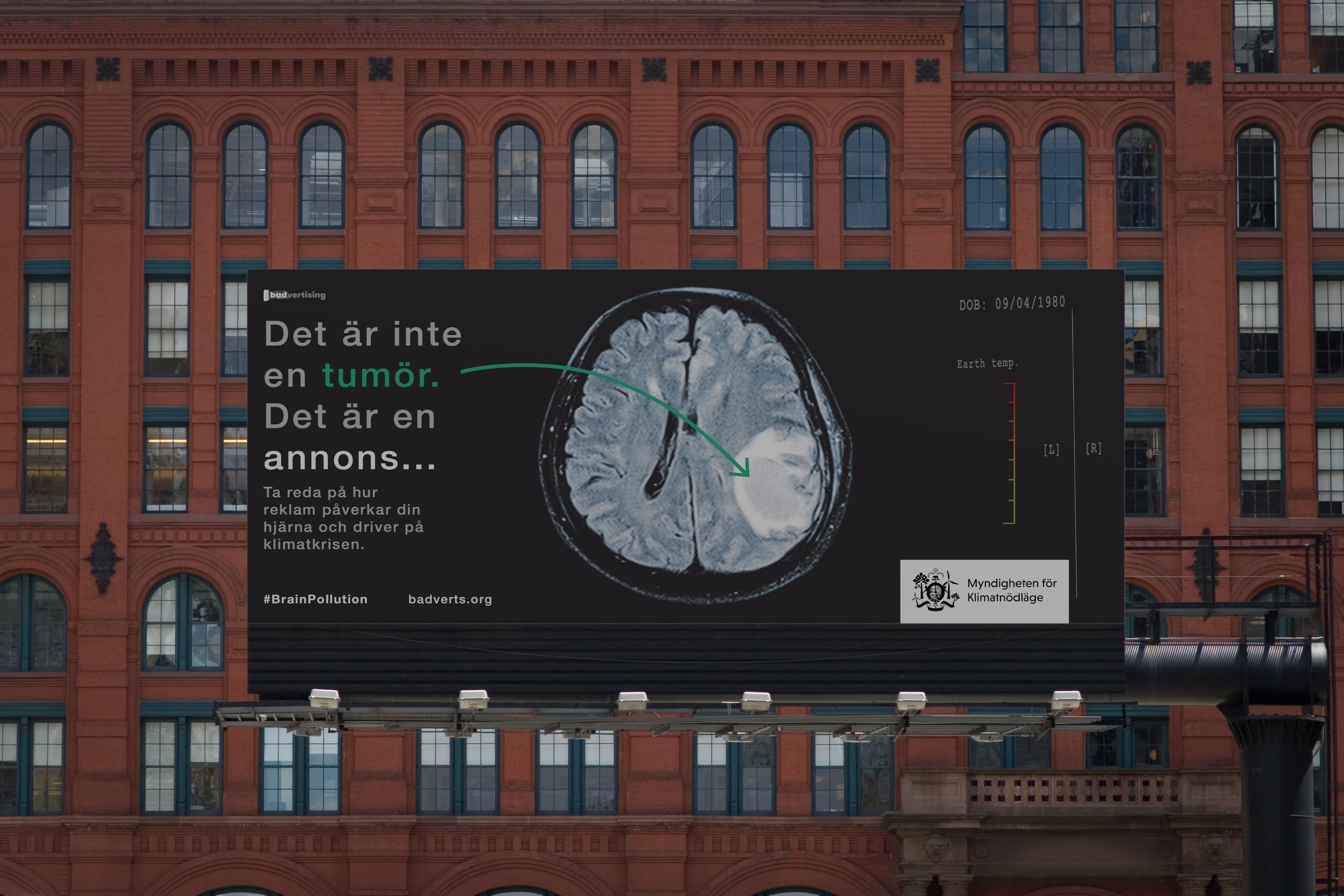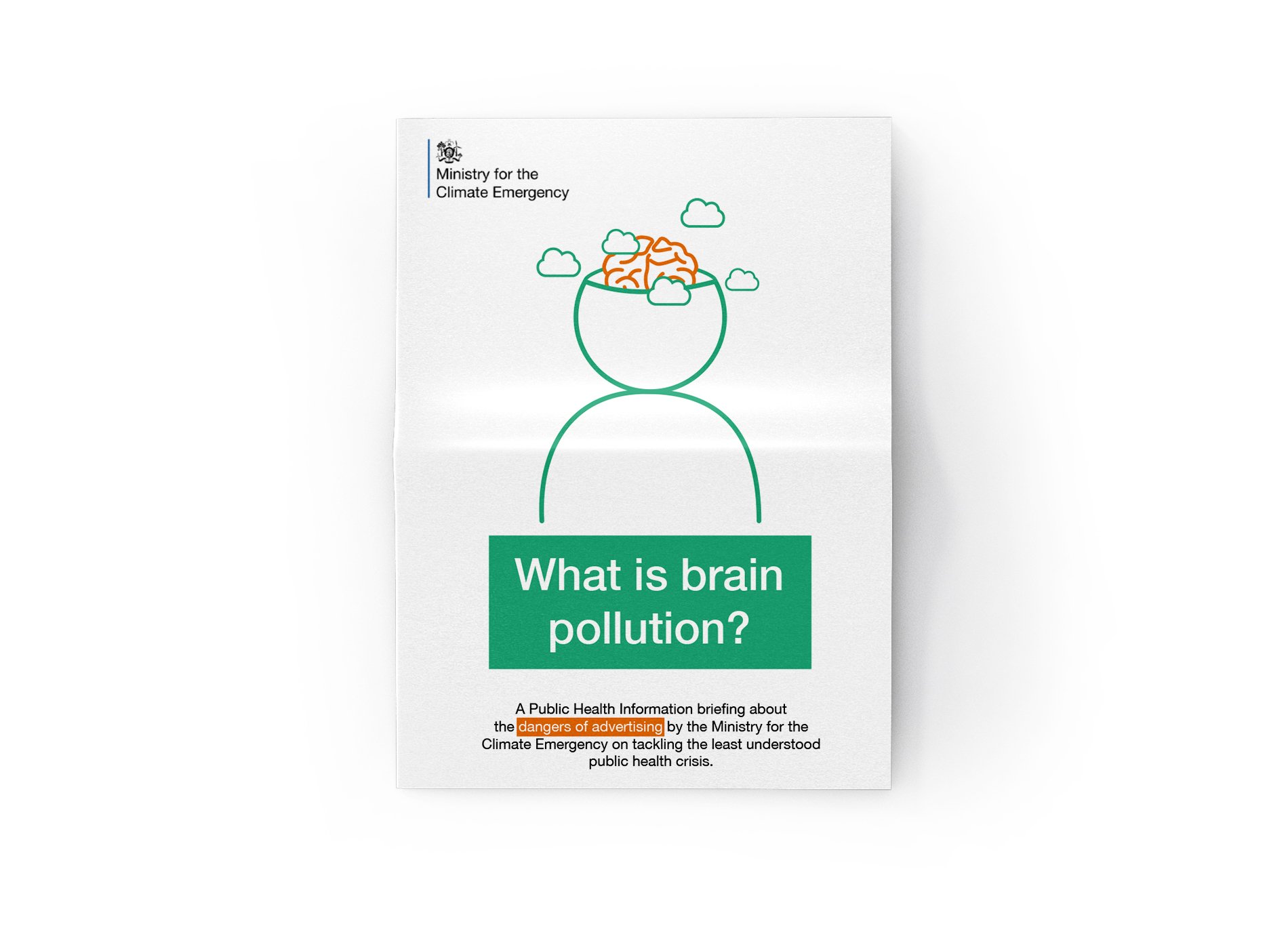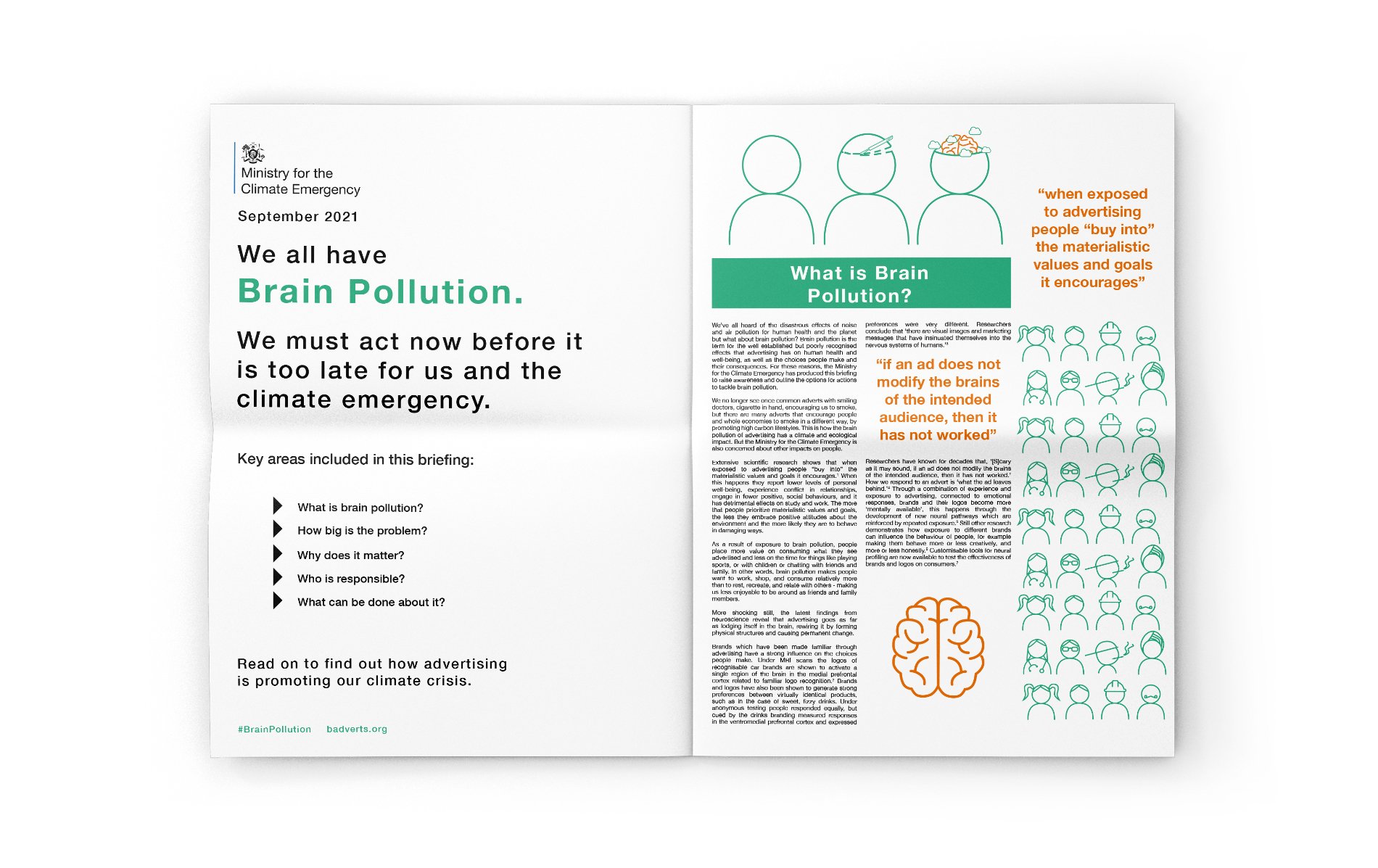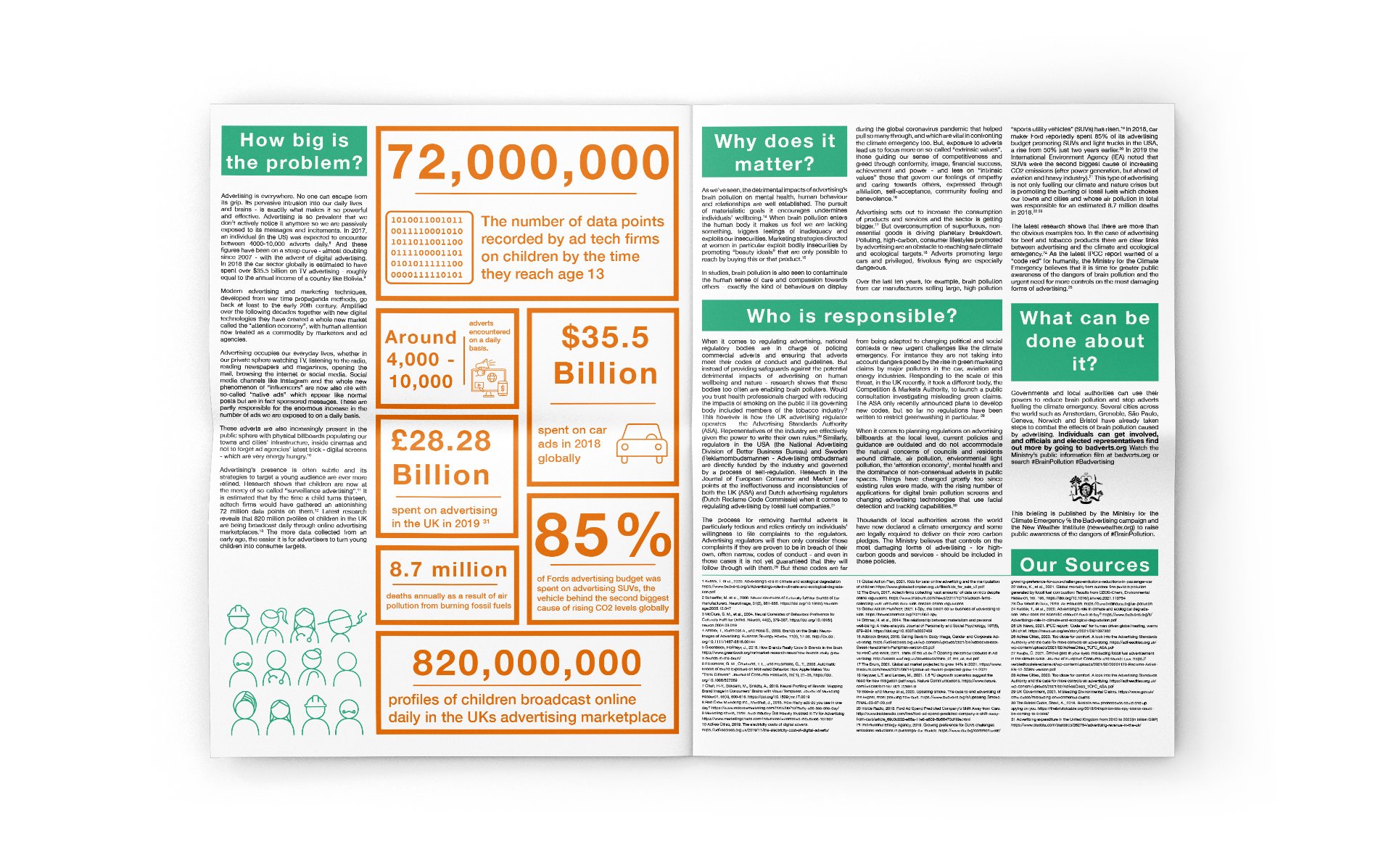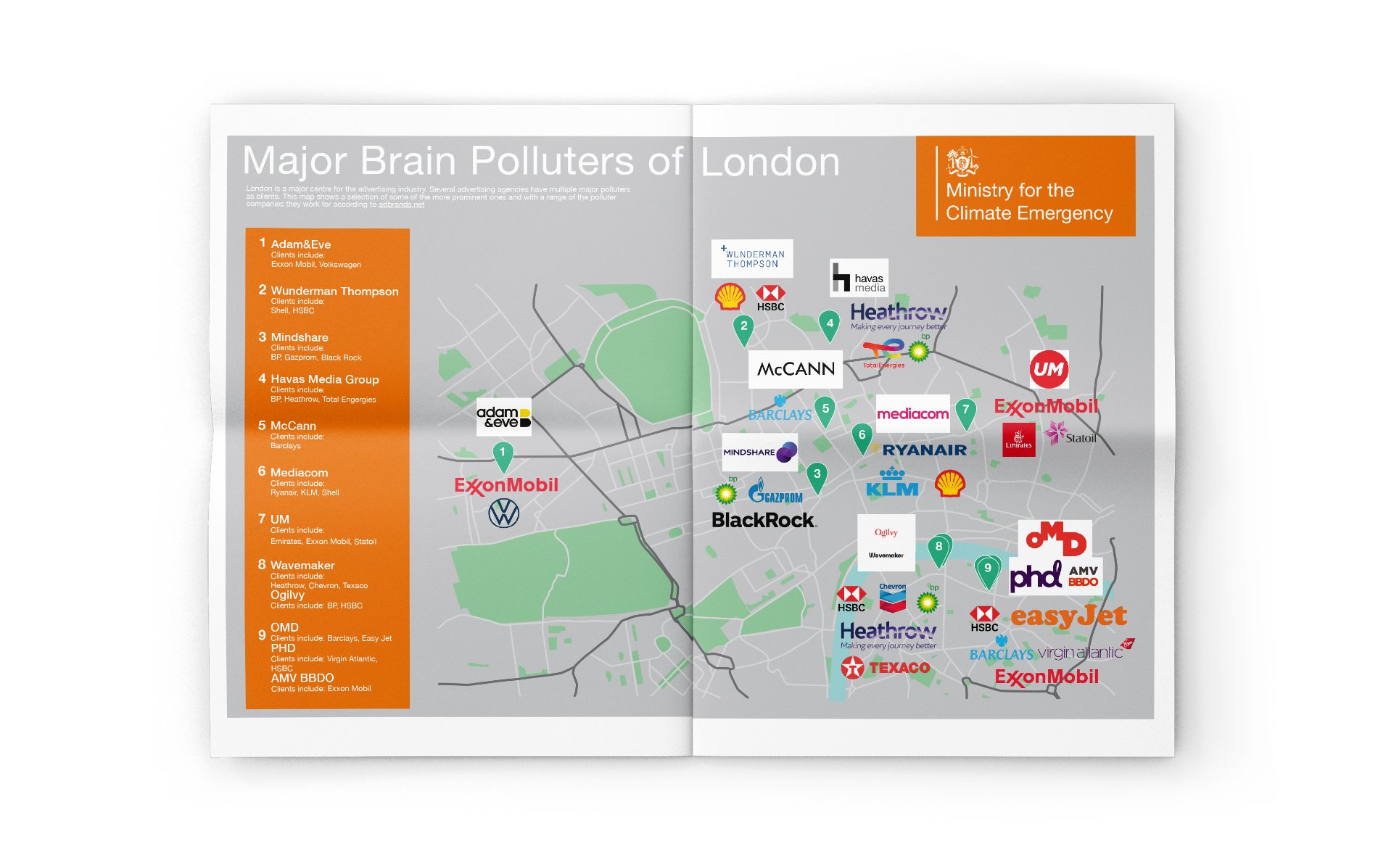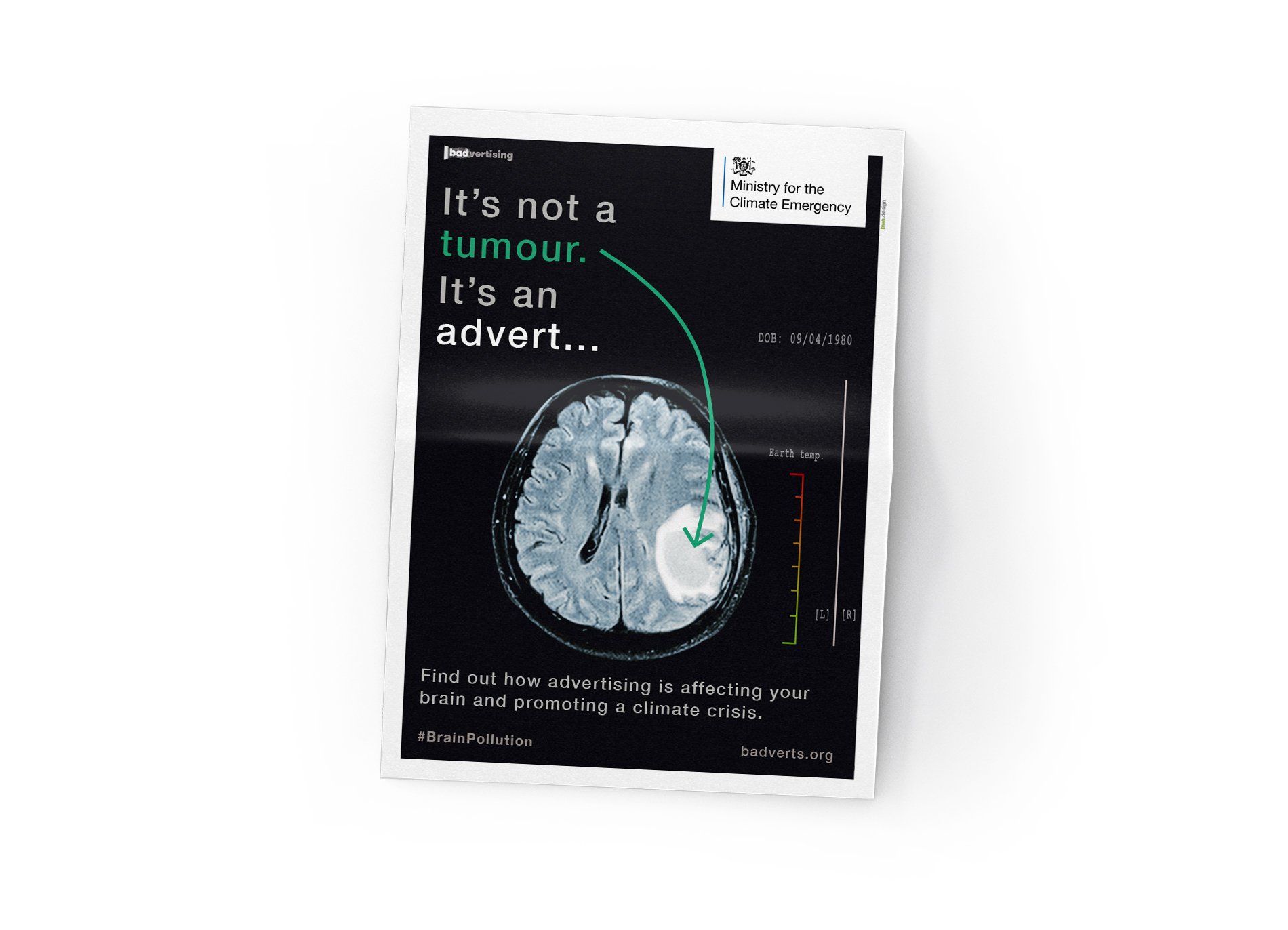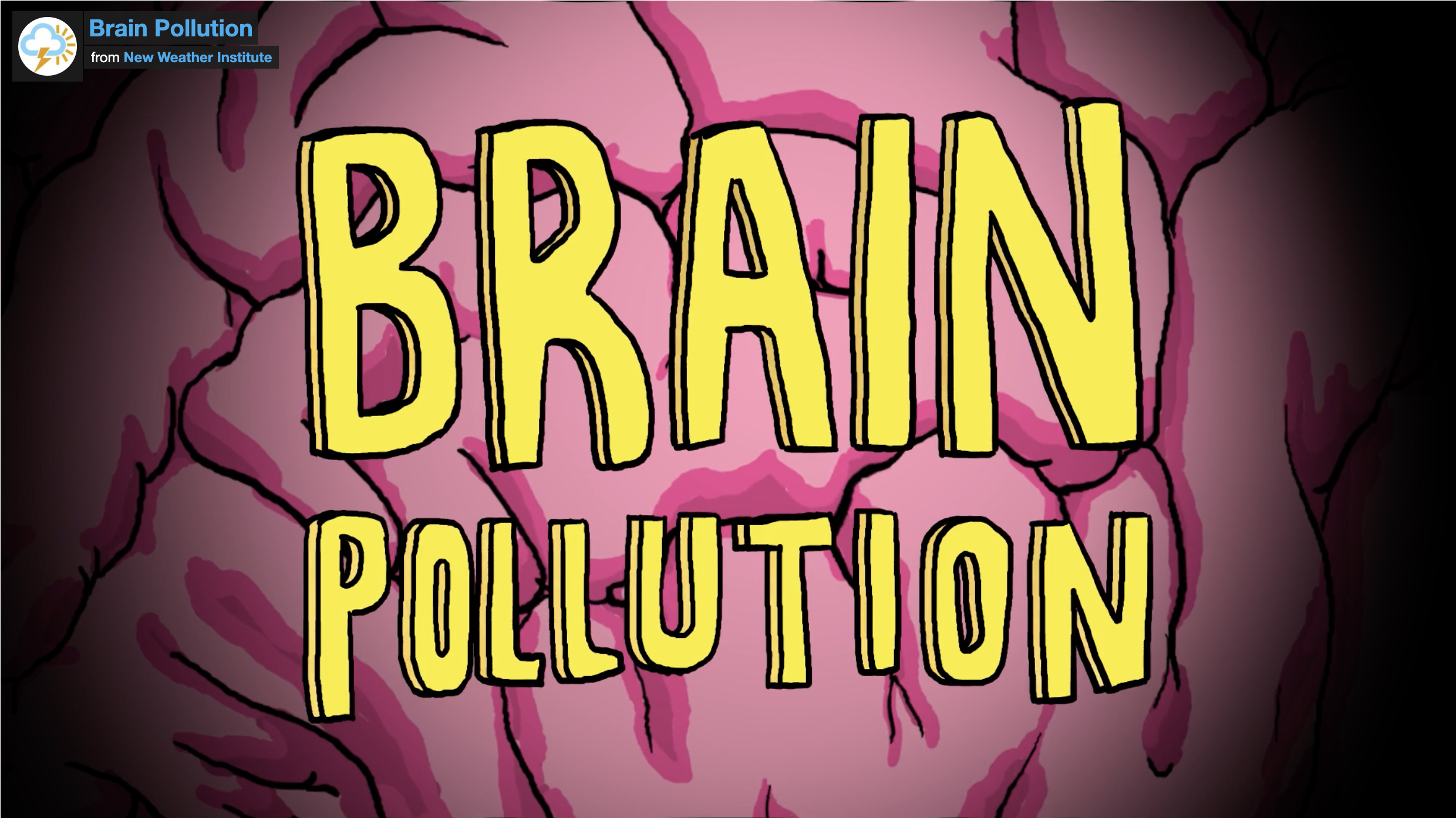brain pollution
ministry for the climate emergency
timeline
2021
location
worldwide
client
New Weather Institute
introduction
The climate crisis is fuelled by the advertising industry, which drives overconsumption and greenwashes the reputations of fossil fuel companies.
Brain pollution is the effect of advertising on human health and well-being, the choices people make and their consequences. The sophistication of adverts encourages people to prioritise materialistic values and promotes high carbon lifestyles. The brain pollution of advertising has a detrimental impact on people and the climate.
Advertising is everywhere. It is subtle and highly strategic. Success lies in exploiting insecurities and influencing choice, but advertising is regulated by representatives of the advertising industry. Therefore there are no controls on the most damaging forms of advertising for high carbon goods and services, which are promoting the climate crisis.
the challenge
Creating a public information campaign on brain pollution that resembles an official government campaign, for the fictitious Ministry for the Climate Emergency, in association with badvertising.
Using advertising to tackle the dangers of greenwashing in advertising and encourage a greater debate surrounding the relationship between advertising and our climate.
our solution
A fake, multilingual campaign connecting advertising to the climate crisis, through brain pollution. Mock-ups of billboards and animations were used across social media to provide authenticity, supported by a printed Briefing and mobile bike powered billboards positioned outside key advertising agencies.
All communications are endorsed by the fabricated Ministry for the Climate Emergency, and promote the badvertising movement.
The campaign was endorsed internationally, with faux equivalent ministry identities for eight countries, and promoted on social media and in press, supporting the steps already being taken in several cities across the world to combat the effects of brains pollution caused by advertising.
The latest data, on the poorly recognised effects of advertising on humans, validates the issue, cause and effect of brain pollution, detailed in a briefing document distributed to both the press and general public.
International advertising agencies are connected to a selection of their highest carbon clients, on a map of central London, to raise public awareness on the scale of the issue and the connection to the climate crisis.
results
Social media presence and press briefings generated coverage in key news publications such as The Guardian and industry specific news sources including The Ecologist, gaining huge exposure and directing readers to our resources available at badverts.org
A digital protest on the Action network generated a coordinated response to fossil advertising.
“brilliant - pitch perfect”
Andrew Simms, Co-Founder, New Weather Institute
The very real dangers of brain pollution, explained and supported with current research data, in a public health briefing from the spoof Ministry for the Climate Emergency.
Social media activities were driven by fabricated ‘authentic’ billboard and press advertising imagery, animations, coverage of guerrilla advertising outside advertising agencies and media articles.
Visual identity, messaging and call to action emulate a credible public health campaign.


